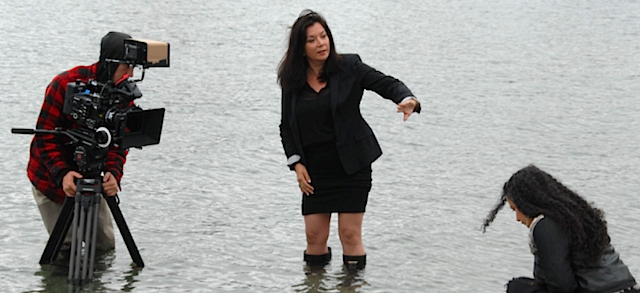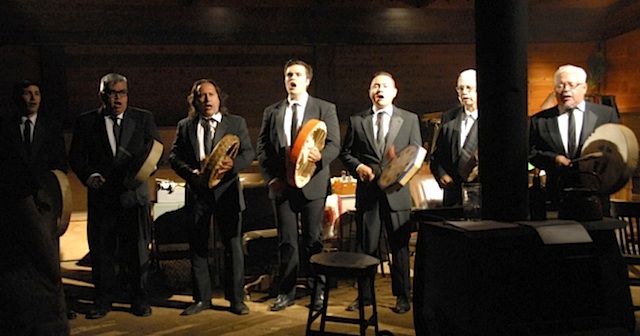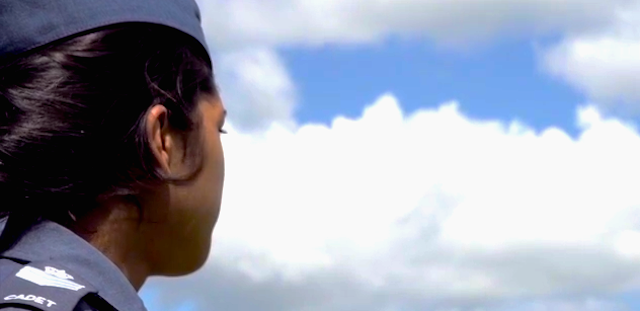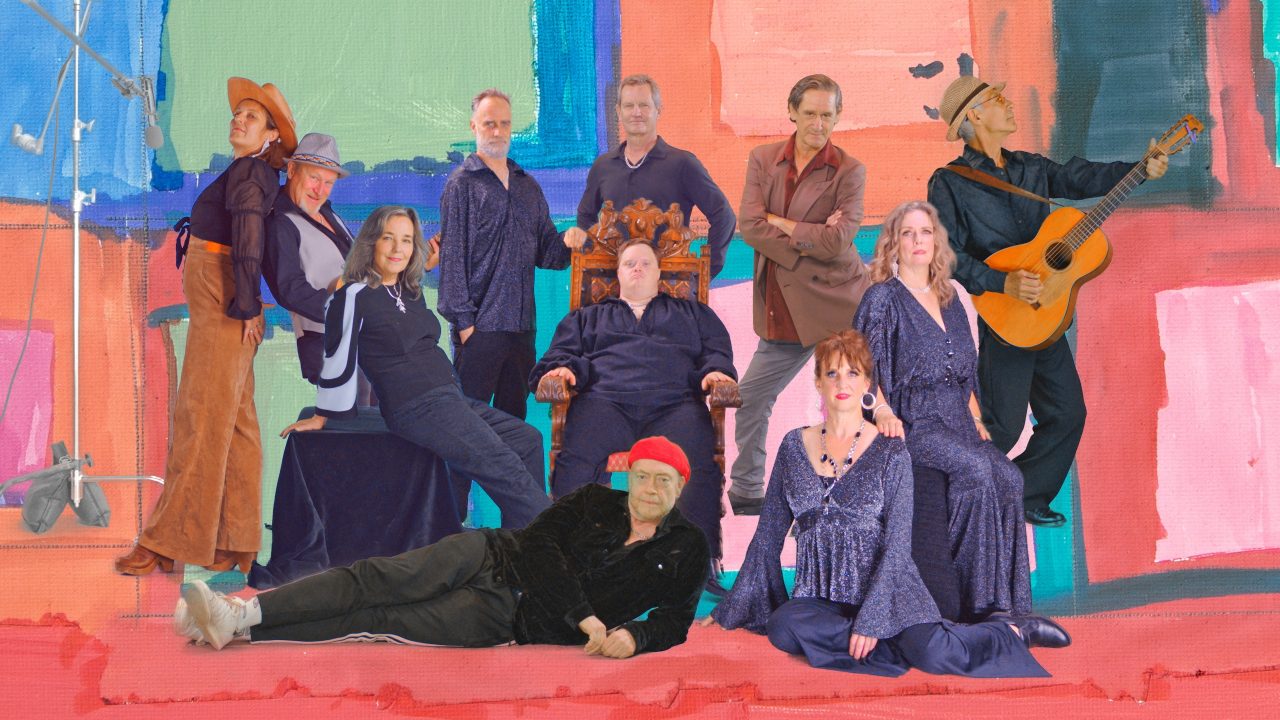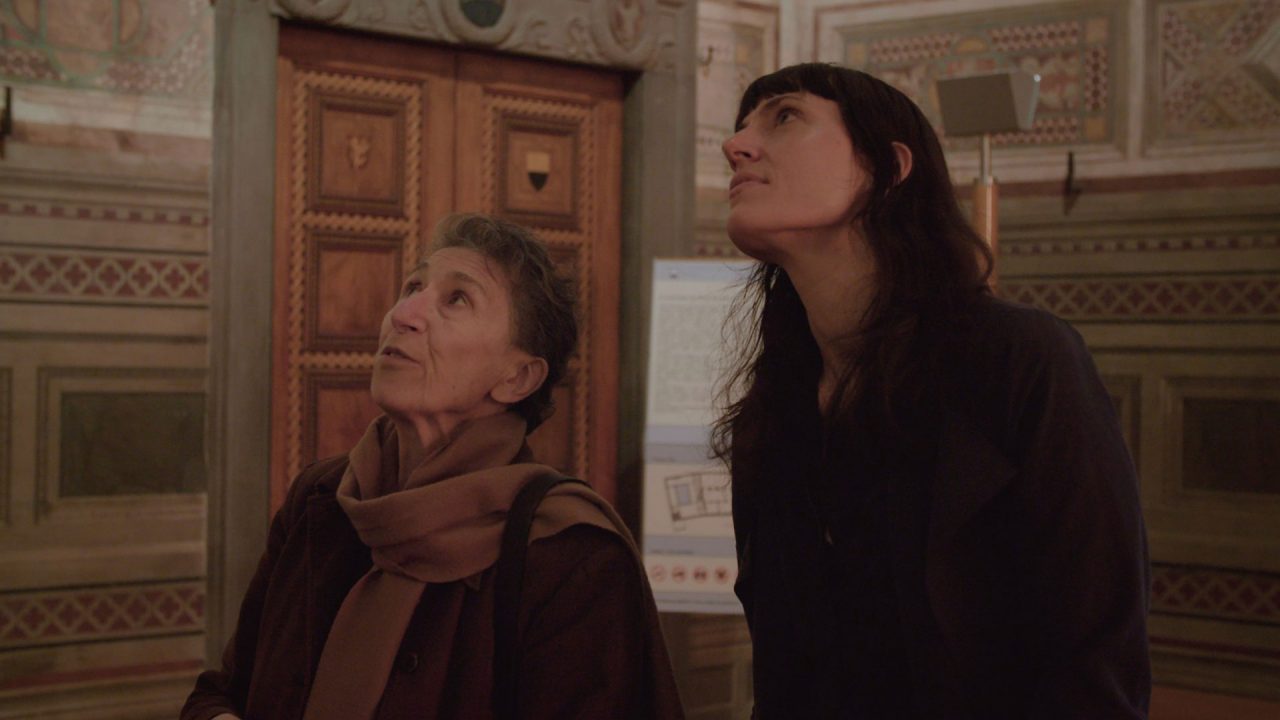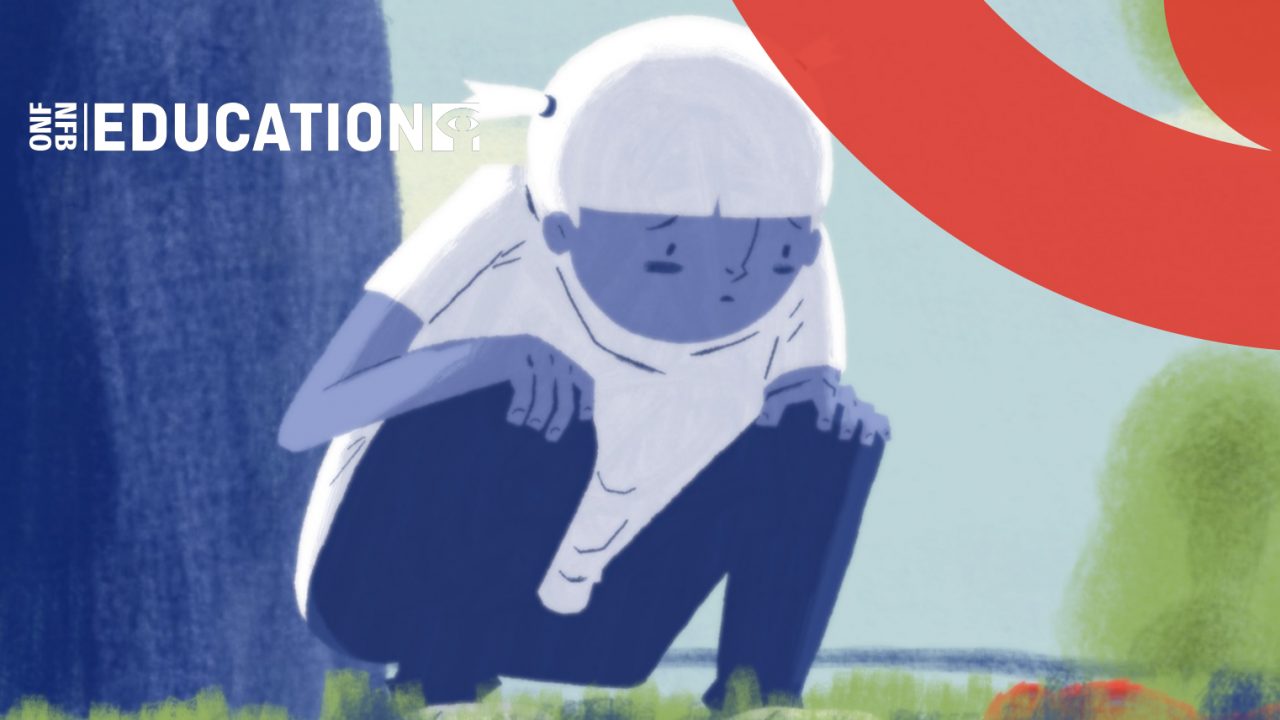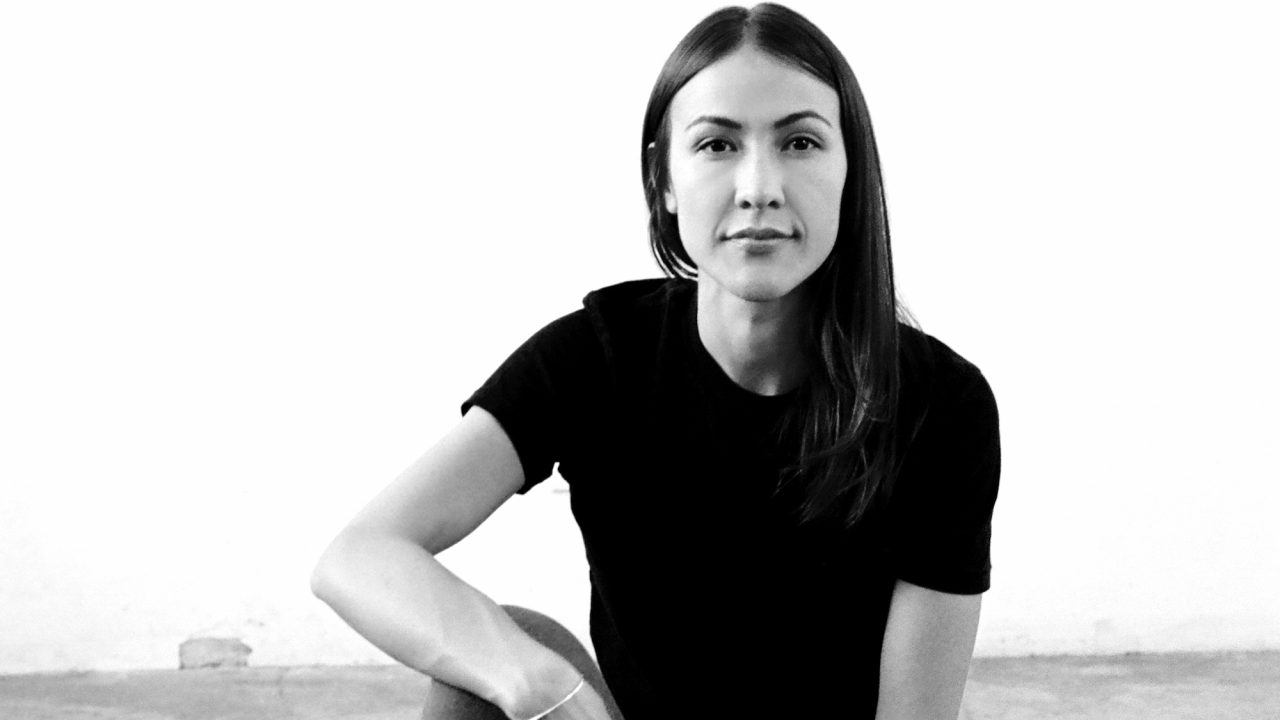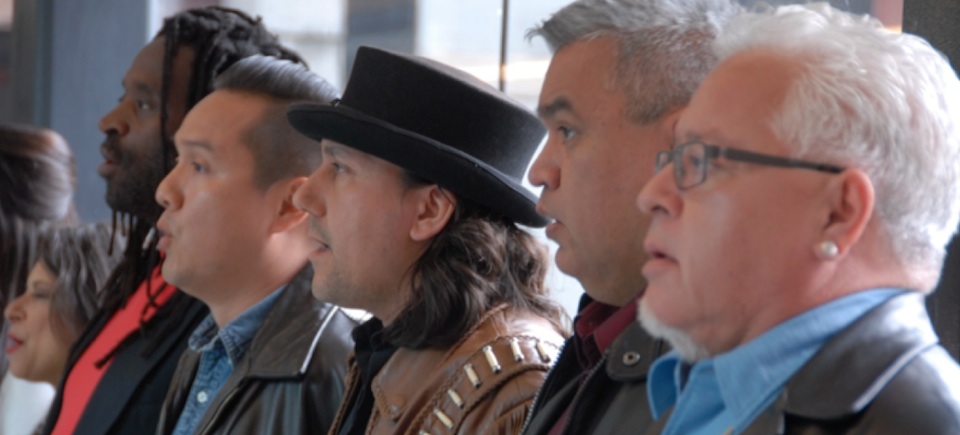
Resistance Song: When Docs Make Music
Resistance Song: When Docs Make Music
“The really crucial distortions in history come not from lies, but from omissions.” So said the historian Howard Zinn noting how official North American history silences the voices of the continent’s First Peoples.
Métis/Dene playwright and director Marie Clements has been challenging that official history and its many omissions for decades, and with The Road Forward, an inventive documentary musical currently in production at the BC & Yukon Studio, she sheds light on a lively chapter in the history of Native citizen-run journalism.
The Road Forward
The Native Voice, Canada’s first Indigenous-run newspaper, was established in the 1940s, a time when Aboriginal people were still denied the vote. Founded by dedicated activist journalists, with key support from the non-Native activist Maisie Hurley, it operated out of modest premises on Vancouver’s Downtown Eastside, just steps away from the NFB’s current Vancouver location, sharing office space with Maisie’s husband, lawyer Tom Hurley. For decades it functioned as the official organ of the BC Native Brotherhood, which has the distinction of being the oldest still active Aboriginal organization in the country.
“Art and activism have always been entwined in my work,” says Clements, who’s bringing the story of The Native Voice to the screen, directing a real-life cast that features some of the brightest stars of contemporary Indigenous music alongside prominent activists like Edwin Newman, whose Aunt Kitty Carpenter edited The Native Voice for years, and Doreen Manuel, whose father George Manuel was the driving force behind the Constitution Express. Pictured below: Clements on set.
Clements first conceived of The Road Forward as live performance, premiering the piece in 2010 at the Aboriginal Pavilion of the Vancouver Cultural Olympiad, which ran in conjunction with the 2010 Winter Olympics. “I was commissioned to create a live event that illuminated some aspect of Indigenous history,” she says, “and this was a story that cried out to be told, a little-known initiative that spoke to a vital period in our collective past. And the paper’s name already suggested song — the idea of voices singing together, demanding change.”
Working in collaboration with Genie-winning composer Jennifer Kreisberg and other guest composers, Clements crafted her own novel take on the rock musical. Remounted for the 2015 edition of Vancouver’s Push Festival, the show it played to enthusiastic sold-out audiences and captured the attention of Shirley Vercruysse, executive producer of the BC & Yukon Studio.
“With The Road Forward, Marie created something utterly original,” says Vercruysse. “She was employing a novel approach to history and storytelling, and we were immediately excited about adapting the project to film.”
The film’s original score is co-composed by Kreisberg, whose composer credits include work on features like Smoke Signals and Unnatural and Accidental, and Wayne Lavallee, one of the most distinctive singer-songwriters on the contemporary international scene. Arranged as a sequence of narrative ‘story songs,’ the score is performed by a veritable powerhouse of contemporary Native talent — an ensemble that includes Michelle St. John, Cheri Maracle, Ostwelve, Murray Porter, Russell Wallace and Shakti Hayes.
“It’s exciting to be marrying music to documentary content,” says Clements. “We’re embedding the ‘story songs’ within reality-based scenarios. They form a central narrative thread within the film, bearing witness to the past while singing out to a new generation, calling them to action.”
The bulk of the interviews were shot in July and August 2015, with subjects representing a wide cross-section of Indigenous activism. Among them are current Native Brotherhood President Henry Clifton: two former Native Sisterhood Presidents, Vera Newman and Karen Jeffery; Aboriginal educators Lorna Williams and Amanda Nahanee: former Supreme Court Judge Thomas Berger; artist/activist Maurice Nahanee; activist Vicki Lynne George, daughter of Ron George; cultural activist Delhia Nahanee, and performing artist Marissa Nahanee. The film’s musical sequences are scheduled to be filmed during a second 10-day shoot in February, 2016. Pictured below: the male members of The Road Forward ensemble: J.J. Lavallee, Russell Wallace, Wayne Lavallee, Corey Payette, Ostwelve, Latash Nahanee and Murray Porter.
“Marie is taking all kinds of creative risks with this project.” says Vercruysse. “She’s assembled a remarkable cast and crew, and together they are taking traditional documentary cinema into thought-provoking new territory.”
Clements has extensive experience in theatre, film, TV and performance art. Her current projects include Red Snow, a feature film in development with True West Films, and a documentary series titled Looking at Edward Curtis. The Road Forward is her first feature documentary project with the NFB. In 2014 she directed the short film Ballads Not Bullets: Tom Jackson, part of the NFB’s ongoing short-film series honouring recipients of the Governor General’s Performing Arts Award.
Ballads Not Bullets: Tom Jackson, Marie Clements, provided by the National Film Board of Canada
The DOP on the project is Mike McKinlay. Editor Jenn Strom has begun the cut at the BC & Yukon Studio. The Road Forward is scheduled for completion in the fall of 2016. Photography by Rosamond Norbury.
At the forefront of Canada’s documentary tradition
The NFB is recognized worldwide for its innovative work in documentary cinema, and The Road Forward is one of several current projects that are taking a fresh approach to the genre. With WALL, in production at the North West Studio, the Calgary-based animator Cam Christiansen is creating the NFB’s very first full-length animated documentary. Working from a monologue by British playwright Sir David Hare and manipulating material shot on location in the Mideast, Christiansen is crafting an animated non-fiction film about the contentious Israel/Palestine separation barrier.
Meanwhile the Ontario Studio is preparing to release The Apology, an ambitious feature doc that addresses the contested history of sexual slavery in WWII Japanese-occupied Asia. Working with seasoned Paris-based editor Mary Stephen, whose credits include Last Train Home and Eric Rohmer’s Autumn Tale, director Tiffany Hsiung has taken the unusual step of focusing exclusively on contemporary storylines, opting to avoid archival imagery altogether. Still at the Ontario Studio, Tess Girard is currently editing As the Crow Flies, a full-length foray into verité poetics that features young women who are training to be pilots, and Astra Taylor is in production on What is Democracy?, a documentary essay inspired by her experience with Occupy Wall Street.
And poised for release from the Quebec-Atlantic Studio is a NFB co-production with Triplex Films, Peter Svatek’s latest film Theatre of Life, a rich and multi-layered reflection on food security and celebrity, featuring the renowned Italian chef Massimo Bottura.
Pictured above: As the Crow Flies, photo by Tess Girard
